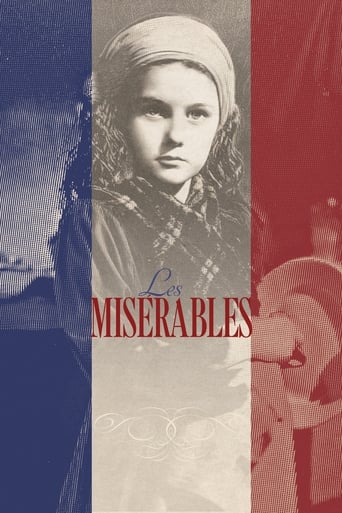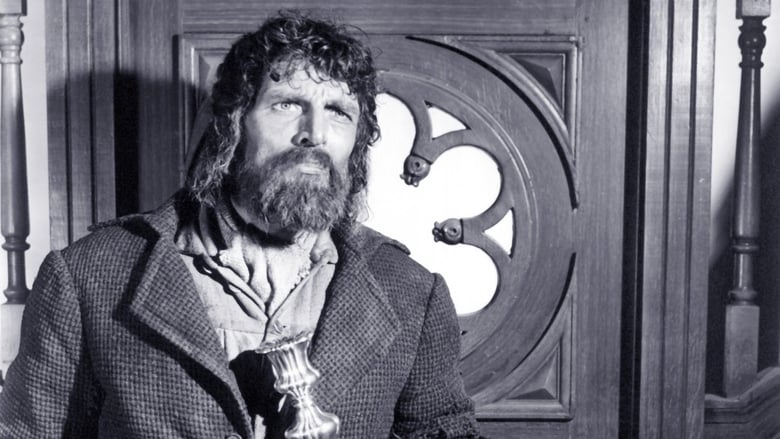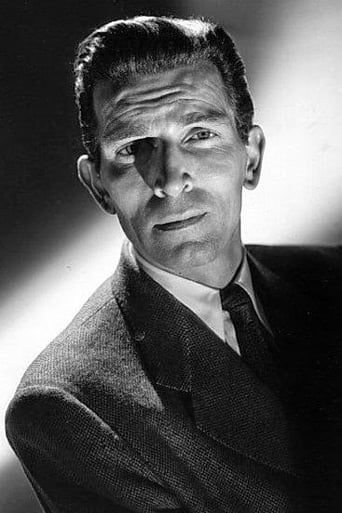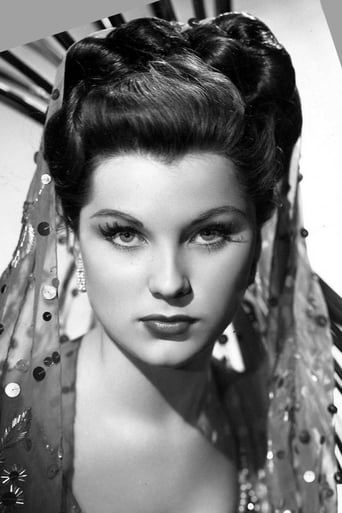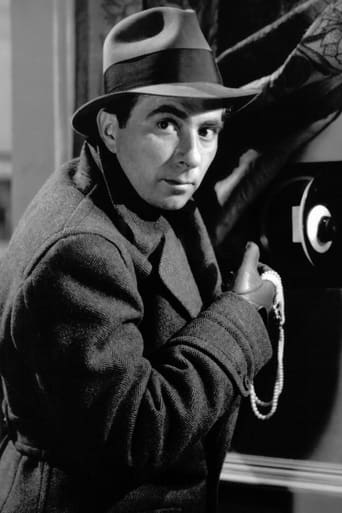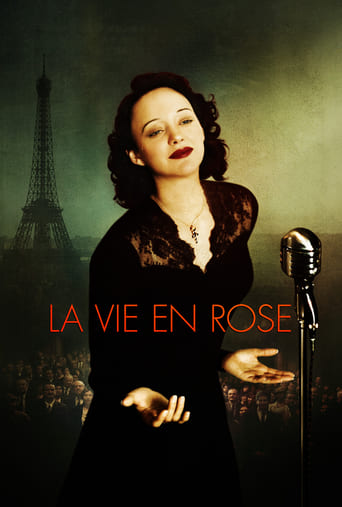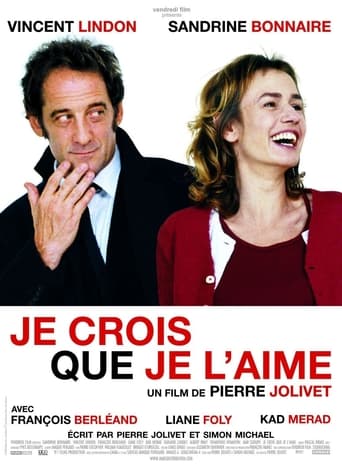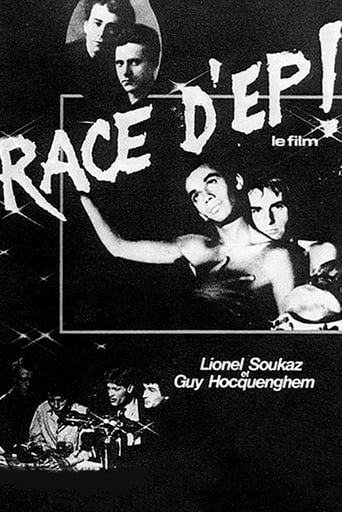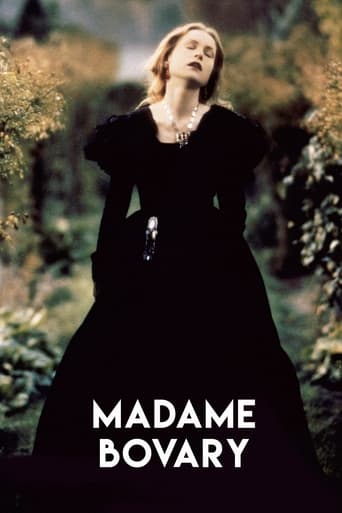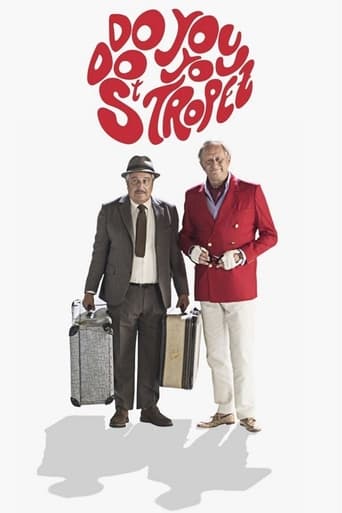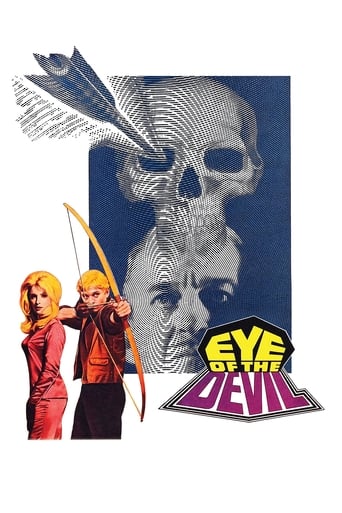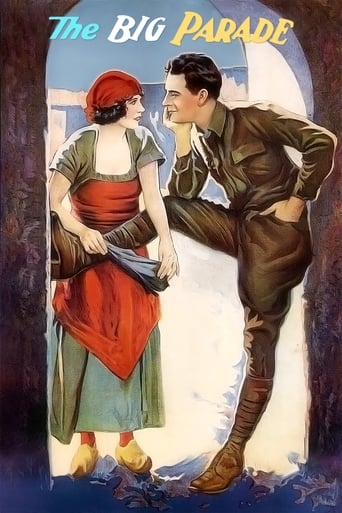Les Miserables (1952)
Jean Valjean, a Frenchman of good character, has nevertheless been convicted for the minor crime of stealing bread. A minor infraction leads to his pursuit by the relentless policeman Javert, a pursuit that consumes both men's lives for many years.
Watch Trailer
Cast


Similar titles
Reviews
There have been dozens of film adaptations of Victor Hugo's classic story, starting from the silent era. I've seen a few, and each version seems to have their own strengths and weaknesses. In the 1952 version, the strengths are the two leads playing Jean Valjean and Inspector Javert: Michael Rennie and Robert Newton. Michael puts his whole heart into this movie and tries as hard as he can to make it better, and of course, Bobbie is always a wonderfully menacing villain.The weaknesses, I'm sorry to say, are quite large. Sylvia Sidney isn't bad as Fantine, but unfortunately, she has a very small part. The larger female lead is the role of Cosette. Debra Paget, who should never have been cast in a drama, let alone a period piece, plays Cosette. She could easily be the worst one in the movie, but her romantic scenes are paired with Cameron Mitchell as Marius. The character of Marius is supposed to be rather innocent, handsome, strong, hopeful, and above all, easy to root for. Cameron Mitchell is none of those things! I would have laughed at the idea that he was supposed to be trustworthy and sincere, but I was too busy cringing.Everyone likes to put his own spin on things, so as you might expect, there are some slight differences to the plot in this one. As hard as Michael and Bobbie try to make their performances the only ones the audiences will remember, Cameron and Debra are overwhelmingly contemporary and miscast. This one isn't my favorite, but I've yet to see a perfect version. With so many characters, there are bound to be actors in every adaptation who threaten to ruin the rest of the movie.
I guess this is about the most filmed of Hugo's novels and it's understandable. It probes the distinction between "the law" and "justice," which aren't always concordant.The story must be fairly familiar. ("The Fugitive" was a shameless rip off.) The tattered, exhausted, starving, bitter, soulless Jean Valjean (Rennie), just out of prison for having stolen a loaf of bread, is taken in by a kindly Bishop, who cares for him and gives him a bed. In return, Valjean gets up early, steals all the silverware and makes off with it. He's caught by the police but the Bishop lies and claims the silver was a gift. It's one of the things I like about the story -- and about many of Dickens' tales too. The poor lead wretched lives but they're hardly all heroes. These stories probe the distinction between "adult stories" and "propaganda." Sent away with the silver and the Bishop's blessings, Valjean gets himself cleaned up and becomes part owner, then full owner, of a pottery shop that prospers under his management. He becomes so well known that he's elected mayor. But in doing so he breaks his parole and, if he's caught, will spend the rest of his life in prison. The likelihood of that's happening increases when the mentally rigid Inspector Javert (Newton) is assigned as head of the district's police force. The son of a convict himself, Newton was one of Rennie's guards in the prison galleys and considers him suspect. His suspicions are confirmed when Rennie sacrifices himself in order to save a confused old man who was mistaken for him.Thereafter, the story gets more complicated -- it's based on an almost endless novel, more than 1400 pages divided into more than 300 chapters.Rennie's adopted daughter, Cosette (Paget), takes up with a young revolutionary (Mitchell), and conflicts ensure. This plot thread probes the difference between "romantic love" and "familial love" because, for all we know, the young Debra Paget being the dish she is, she may be Lolita to Rennie's Humbert Humbert. That's what Mitchell thinks, anyway. For some reason I never cared much for Mitchell as an actor, or for his sympathetic but hot-headed character, Marius. They were rebelling against the captains of industry and the robber barons who were making fortunes at the expense of everyone else, just as in much of the rest of the industrialized world, okay, but violence tends to beget violence. Besides, I can't remember a single powerful performance from Cameron Mitchell. He may have been a nice guy in real life, loved his dog, collected pressed roses. Let's see. I think I've covered the Cameron Mitchell business. Ah, but the strawberries. The strawberries! That's where I had them! You should see me "do" Humphrey Bogart. My son tells me it's terrific, although I have to beat him into saying it.In the end, it's hard to compare the various filmed versions of "Les Miserables." For one thing, I haven't seen that many of them. For another, the main theme of pursuit by a single-minded neurotic aside, there are so many plot threads to be followed with varying degrees of detail, that each version is almost like a different movie. The most "realistic" version that I've seen is unquestionably the rendition starring Liam Neeson as Jean Valjean and Uma Thurman as Cosette's prostitute mother who dies of tuberculosis. When Thurman coughs, she spits up blood. And Geoffrey Rush as Javert was superb. The version with Frederick March, like the one under discussion, is given the broad Hollywood treatment and is nice and taut, but tastes differ.
This was the first version of Les Miserables that I saw. I have seen 3 versions since, including the excellent French version with Gerard Depardieu and John Malkovich, but none has the same sheer storytelling power of the 1952 version. Michael Rennie and Robert Newton are superb in their contrasting roles, and the support cast is excellent.
The REAL reason to see this film is to watch Robert Newton as Javert. Javert was a gypsy born in prison who, by shear force of will on his part, has gotten himself into a position of power. He is inflexible and Spartan in his life style and expects as much or more of himself than he does his acquaintances, (he has no friends), and those he rules over.The problem with the film is that Michael Rene is nothing like Hugo's massive peasant, Valjean. Jean Valjean was a stocky, broad-shouldered, barrel-chested man of only average height and a low center of gravity, Not the tall, slender, elegant Rene. AND, Rene was only an average actor. Deborah Paget couldn't act at all, she was there for pure decoration value.See this film for Newton's Javert. He is superb.

